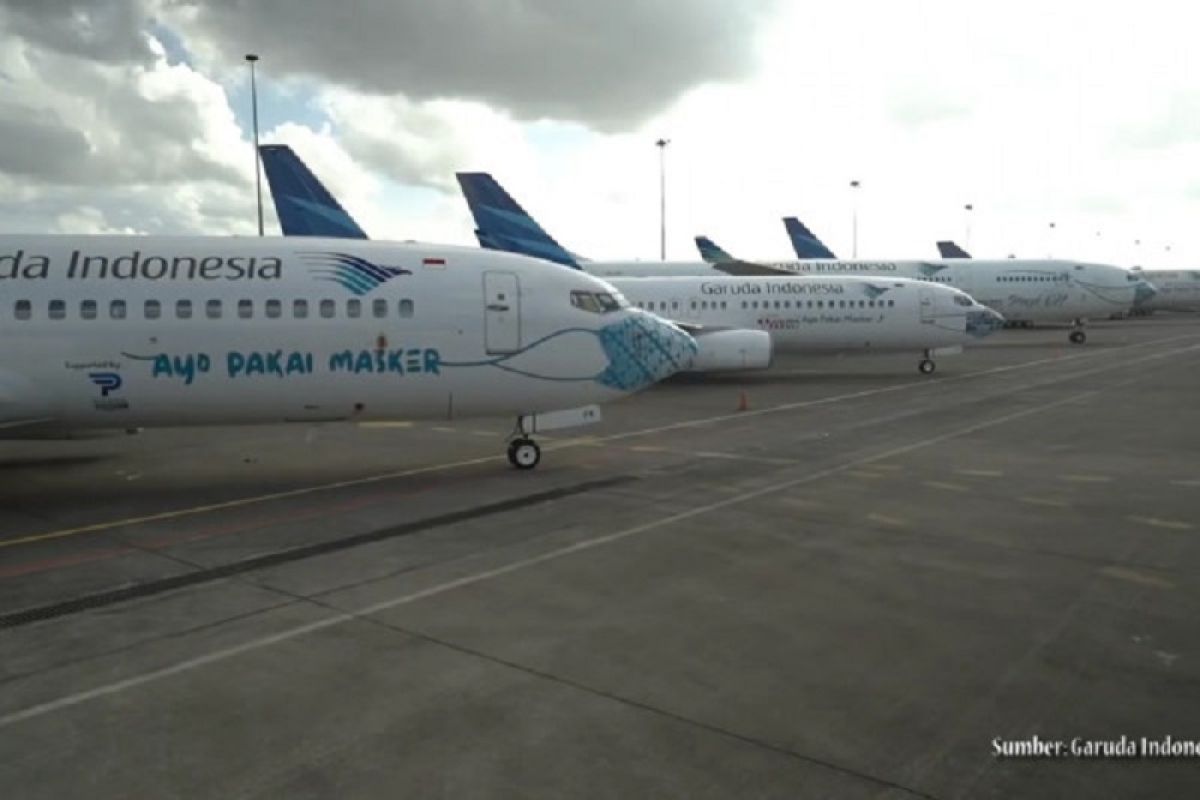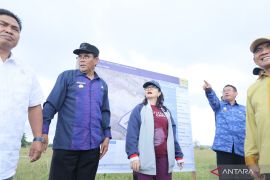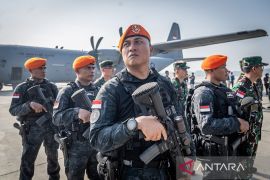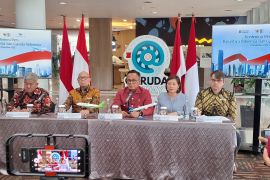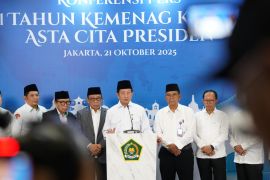The Garuda Indonesia Labor Union (Sekarga), Garuda Pilot Association (APG), and Garuda Indonesia Cabin Crew Union (Ikagi) made the request on behalf of employees in a letter to the Home Ministry, according to Tomy Tampatty, union coordinator of United Garuda Indonesia.
The three trade unions have jointly appealed to the government, as disclosed in the letter (Sekber/021/VIII/2021 dated August 3, 2021) that the Sekarga, APG, and Ikagi chairpersons signed, he informed in a press statement that ANTARA received here on Wednesday.
The Home Minister's Instruction No.27/2021 on the Enforcement of Level 4,3, and 2 Public Activity Restrictions in Java and Bali has made it compulsory for domestic airline passengers to take PCR tests at least 48 hours prior to departure, he said.
However, travelers using other transportation modes, including private cars, motorbikes, buses, trains, and vessels are only required to show the results of rapid antigen tests taken a day before departure, he noted.
The different testing requirements for those traveling by airplanes and by other transportation modes in the country have created a sense of discrimination, Tampatty said.
He argued that traveling time is shorter for air passengers than those traveling by other means of transportation.
Related news: Domestic travelers' vaccine card mandated in level 3, 4 areas
While taking a flight, passengers are also more comfortable because Garuda Indonesia, for instance, has strictly implemented the health protocols and installed HEPA filters to clean up cabin air, he said.
"PCR testing costs have become a burden for airline passengers, and, sometimes, they are higher than their flight ticket prices in certain flight routes," he said in the press statement.
Many air passengers have complained about the PCR test requirement, he said, adding that this could have contributed to a drastic decline in the occupancy rate of airlines.
Therefore, the government must involve aviation experts in making its air transportation-related policies, he advised. Garuda Indonesia workers are ready to help the government if needed, he added.
ANTARA has earlier reported that the government has set the ceiling price for individually-requested PCR tests at Rp900 thousand and rapid antigen tests at Rp250 thousand for the island of Java, and Rp275 thousand for areas outside Java.
Related news: Travelers necessitated to hold vaccination cards during emergency PPKM
Coronavirus infections initially emerged in the Chinese city of Wuhan at the end of 2019, and then spread to various parts of the world, including countries in the Asia-Pacific region.
The Indonesian government announced the country's first confirmed cases on March 2, 2020.
Since then, the central and regional governments have made persistent efforts to flatten the coronavirus curve by imposing healthcare protocols as well as social and travel restrictions.
The pandemic has impacted the purchasing power of many Indonesian families, and seriously impacted public health and economy.
Commercial aviation has been one of the hardest-hit business sectors in Indonesia.
Related news: Peak of COVID-19 cases in Java-Bali has passed: health minister
Related news: Three regions outside Java-Bali see spike in COVID cases
Reporter: Rahmad Nasution
Editor: Suharto
Copyright © ANTARA 2021
